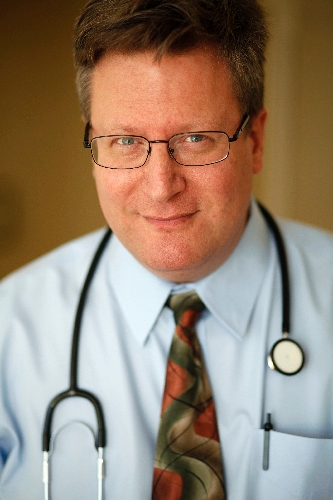DIAGNOSIS LAS VEGAS: Dr. Howard Baron

What is the biggest misconception about medical care in Las Vegas?
The biggest misconception is that you must leave our community to receive top-notch or specialized care. This is an unfortunate myth that is propagated in part by a small number of citizens who recall the days before the boom in our population, which was accompanied by an influx of well-trained doctors in almost every specialty. Outside of some organ transplantation and a few areas that lend themselves to care in a major academic environment, we now have all areas of care available, even for areas of high medical complexity.
If you could change one thing about health care in Las Vegas, what would it be?
Although we have all the parts necessary to provide outstanding care, we do not have a level of coordination or communication between practitioners and hospitals that make up a true health care system. Patients often report to multiple hospitals in different systems, and the sharing of information is not instantaneous. Similarly, patients referred from primary care to specialists are frequently dismayed to arrive at the specialist’s office only to find that their records of importance were not forwarded in advance of their appointment. This leads to either wasteful replication of tests or tremendous office staff time hunting down information, and potentially a delay in care. Electronic health records will help solve this problem, but until we have our health information exchange up and running and fully subscribed, we will suffer from inefficiencies in our system.
Las Vegas is often regarded as an unhealthy city. Is that a fair assessment?
Insofar as our community ranks among the poorest nationally in areas such as obesity, teen pregnancy and addiction, it is fair. However, the fact that we have incredible year-round opportunities for outside activities and relatively good air quality should theoretically give us opportunities to improve. I think we will see a trend toward prevention of chronic ailments such as diabetes, hypertension and the morbidities that accompany these diseases as we see our health care system change to emphasize prevention over simply disease treatment.
What is the biggest challenge facing the medical community in 2012?
Keeping up with the demand for care in the face of many unknowns about the changing landscape of health care, especially reimbursement. As of the present time, we do not know if the nearly 30 percent cuts in reimbursement to physicians who care for Medicare patients will take effect as of Jan. 1. The federal supercommittee recently adjourned without a solution to the flawed sustained growth rate formula, which has been the source of angst for several years, every time impending cuts are due. In the face of an already overstressed system, this could significantly affect access to services for many seniors who rely on Medicare coverage.
While many practices are being merged into larger multispecialty groups in our community, presumably to position themselves for the new accountable care organization model outlined in the Affordable Care Act, we still do not know what will actually be enacted and what may be stricken from the original legislation, making this another source of uncertainty. While pay for performance is being discussed, it is as yet unclear how our system will convert to a model of reimbursement for quality rather than for quantity of services provided.












